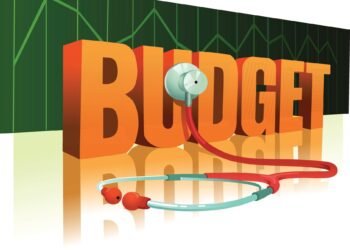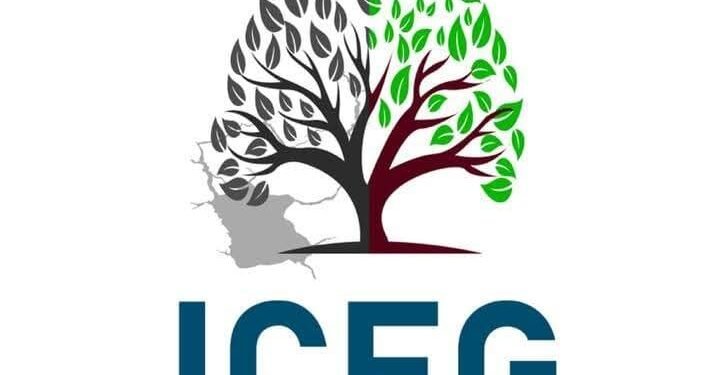Ghana’s economy is showing renewed vitality as domestic demand and consumer spending surge in the early months of 2025.
According to official fiscal data, domestic Value Added Tax (VAT) collections rose by 33.6 percent in the first five months of the year, reaching GH¢8.31 billion, compared to GH¢6.22 billion recorded during the same period in 2024.
The jump in VAT receipts reflects a parallel upswing in retail activity, with retail sales climbing 35.7 percent cumulatively between January and May 2025. The figures indicate a healthy recovery in private consumption, underpinned by stable prices, gradual improvements in disposable incomes, and stronger tax administration systems.
The robust performance in retail trade and VAT revenue points to an economy on the rebound — one that is slowly shaking off the lingering effects of inflationary pressures, currency depreciation, and fiscal tightening that characterized previous years.
Retail Sector Fuels Growth Momentum
The retail sector continues to be a key pillar of Ghana’s domestic economy, reflecting the spending behavior of households and the general pulse of consumer confidence. In May 2025 alone, retail sales rose by 38.6 percent year-on-year to GH¢277.62 million, up from GH¢200.27 million in May 2024. On a month-to-month basis, activity also improved by 4.6 percent, increasing from GH¢265.46 million in April.
This consistent upward trend suggests that households are spending more, and businesses are responding by increasing supply and inventory levels. Retailers, especially those in urban centers, have benefited from steady demand and an improved economic outlook.
The expansion in retail activity also demonstrates the positive impact of digital commerce and payment systems, which have helped streamline transactions and boosted consumer convenience. As more traders adopt electronic sales platforms and cashless systems, record-keeping and tax compliance have improved significantly, supporting the increase in VAT collections.
VAT Collections Reflect Broad Economic Recovery
VAT revenue performance provides one of the clearest indicators of the strength of Ghana’s domestic market. In May 2025, VAT collections rose by 30.1 percent year-on-year to GH¢1.77 billion, reinforcing the pattern of strong consumer engagement observed since the beginning of the year.
This growth reflects not only heightened retail activity but also enhanced efficiency within the Ghana Revenue Authority (GRA), which has intensified monitoring and introduced digital tools to improve compliance. The integration of electronic invoicing, real-time data tracking, and stricter audit mechanisms have helped plug revenue leakages, ensuring that more taxable transactions are captured within the system.
The sustained improvement in VAT performance therefore signals both economic resilience and progress in fiscal administration. Higher VAT receipts mean more resources for government to fund development projects, reduce budget deficits, and support public service delivery without relying excessively on borrowing.
Meanwhile, the upward trend in both VAT and retail sales points to growing confidence among Ghanaian consumers. Stable inflation, improving employment conditions, and moderate growth in real incomes have encouraged households to increase spending.
The gradual stabilization of the exchange rate and better price management for essential goods have also played key roles in restoring purchasing power. Consumers who had previously tightened their budgets during periods of high inflation appear more willing to make discretionary purchases, especially in retail and household goods.
This renewed confidence has ripple effects throughout the economy. Higher sales volumes mean increased business turnover, which in turn stimulates production, logistics, and wholesale trade. The result is a more dynamic domestic market that can help sustain growth even in the face of external shocks.
Sustaining the Positive Momentum
Despite the encouraging signs, sustaining this strong performance will require continuous policy discipline. The gains in consumer spending and tax revenue could easily be undermined by a resurgence in inflation or fiscal slippages.
Maintaining macroeconomic stability remains essential to preserving household purchasing power and encouraging long-term consumption growth. Government efforts to control expenditure, manage debt levels, and support small businesses through access to finance and stable power supply will be crucial to keeping the retail sector vibrant.
Additionally, deepening digitalization within the tax system and encouraging wider participation in the formal economy can further broaden the VAT base. When more businesses comply with tax obligations, government revenue increases, creating a positive cycle that supports infrastructure, public services, and overall economic stability.
The surge in VAT and retail sales during the first five months of 2025 offers a promising signal of recovery in Ghana’s domestic economy. The data suggests that the foundations of growth are gradually shifting from external borrowing and public investment to internally generated revenue and private consumption.
As domestic demand strengthens, businesses are likely to expand operations, create jobs, and reinvest profits into production. This virtuous cycle could enhance economic resilience and set Ghana on a more sustainable path of inclusive growth.
The challenge, however, will be maintaining momentum amid potential headwinds such as global commodity price shifts and fiscal pressures. If policymakers remain focused on prudent economic management and supporting productive sectors, Ghana’s retail-driven recovery could translate into broader economic transformation.
READ ALSO: Government to Deploy 5,000 Agriculture Graduates Nationwide























